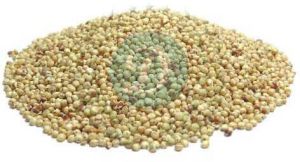
Sorghum
Get Price Quote
General Characteristics Sorghum (Sorghum bicolor), also known as milo, has a variety of uses including food for human consumption, feed grain for livestock and industrial applications such as ethanol production. The area planted to sorghum worldwide has increased by 66 percent over the past 50 years, while yield has increased by 244 percent. Around half of the sorghum produced is fed to livestock, and half is consumed by humans and used in other applications. Currently, most human consumption of sorghum occurs in low-income countries, while high-income countries typically use sorghum as a component in livestock feed or to produce ethanol. Sorghum is a versatile plant because it can tolerate drought, soil toxicities, a wide range of temperatures and high altitudes.. World market The United States is currently positioned as the number two producer and number one exporter of sorghum in the world market in 2010. In 2014 USA is a major producer of sorghum. World trade in sorghum is dominated by U.S. exports to Mexico. Other importing countries and regions include Japan, the EU, Africa, Colombia, Canada and Korea. Over the past 30 years, annual world production and the area planted to sorghum have both decreased marginally from 62.8 to 59.3 million metric tons and 44.5 to 41.9 million hectares. Yields in 1978–80 and 2008–2010 were virtually the same (1400 and 1412 kilograms per hectare). However, these global figures mask wide variations at the national level. In India, for example, between 1978 and 2010 the area planted to sorghum fell from 16. 1 to 7.7 million hectares and annual production fell from 11.4 to 7.0 million metric tons, but yields increased by 40% from 689 (in 1978–80) to 965 kilograms per hectare (in 2008–10). Sorghum Usage In many parts of the world sorghum has traditionally been used in food products and various food items; porridge, unleavened bread, cookies, cakes, couscous and malted beverages are made from this versatile grain. Traditional food preparation of sorghum is quite varied. Boiled sorghums are one of the simplest uses and small, corneous grains are normally desired for this type of food product. The whole grain may be ground into flour or decorticated before grinding to produce either a fine particle product or flour, which is then used in various traditional foods. Sorghum has unique properties that make it well suited for food uses. Some sorghum varieties are rich in antioxidants and all sorghum varieties are gluten-free, an attractive alternative for wheat allergy sufferers. Because of its neutral taste, sorghum absorbs other flavors well. For example, U.S. white sorghum has been exported to Japanese millers to be processed into flour. Japanese snack food processors have used the flour in research and recipe development, leading to commercialization of snack food products. It is anticipated that more white sorghum based products will debut soon both in Japan and in North America. Sorghum is also an important animal feed used in countries like the U.S., Mexico, South America and Australia. Good-quality sorghums are available with a nutritional feeding value that is equivalent to that of corn. Sweet Sorghum can be processed to further improve its feed value and techniques such as grinding, crushing, steaming, steam flaking, popping and extruding have all been used to enhance the grain for feeding. Conclusion Sorghum is one of the most drought tolerant cereal crops currently under cultivation. It offers farmers the ability to reduce costs on irrigation and other on-farm expenses. The International Water Management Institute (IWMI) warns that by the year 2025, 25 percent of the world's population will experience severe water scarcity. However, water productivity in both irrigated and rain-fed acres can be increased through the use of more water-use efficient crops, like sorghum.
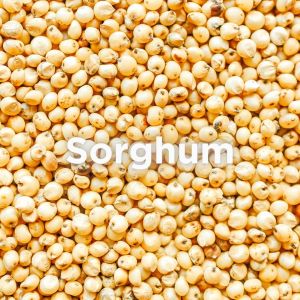
Organic Sorghum
60 - 65 Per Kilogram
1 Ton (MOQ)
Experience the pure essence of nature with our organic sorghum – a versatile and nutritious grain cultivated through sustainable and pesticide-free practices. Our commitment to organic farming ensures that every grain is rich in wholesome goodness and free from harmful chemicals. Embrace the hearty and mildly sweet flavor of organic sorghum in your culinary creations, whether as a delightful grain bowl or a gluten-free flour alternative.
Best Deals from Sorghum
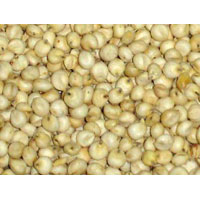
Sorghum
Get Price Quote
20 Metric Ton (MOQ)
We offer best quality of sorghum with different grade.
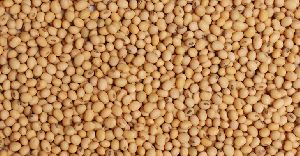
Sorghum
Get Price Quote
Sorghum, a grain, forage or sugar crop, is among the most efficient crops in conversion of solar energy and use of water. Sorghum is known as a high-energy, drought tolerant crop. The kernels are covered to give a grubby appearance in mass, or that contains 20 or more dust balls in 100 grams of sorghum. Parameters Based on tannin content , the product is divided into 4 groups Sorghum Tannin sorghum White sorghum Mixed sorghum Colour differentiates them but the characteristic to keep each other apart is tannin content. Packing: As per customer specifications
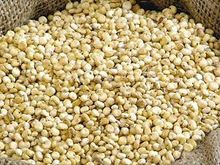
Snow white sorghum
Get Price Quote

Yellow Sorghum
Get Price Quote
We are engaged in supply of yellow sorghum. This is a small plant generally cultivated in south west pacific regions and australia. Sorghum plant species are extensively used as a food grains and fodder for animals. These are also used in manufacture of various alcohlic beverages and bio diesels. Stalks of sorghum plant is used are used in production of kirei board.

Jowar
Get Price Quote
sal seeds meal, Feed Barley, dorb rice, de oiled rice, Sal Seed Meal